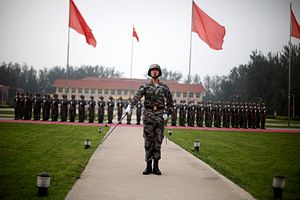The People’s Liberation Army (PLA) has captured headlines in recent years for its renewed confidence and assertiveness. The image of Chinese soldiers, carefully crafted by propagandists, paints them as men of steel – fearless and unstoppable. But what is really behind the façade?
Despite their fierce public persona, soldiers are human beings like the rest of us, made out of flesh and blood and vivified by emotions. While it is important to understand the PLA’s hardware buildup, this article seeks to understand the psychological health of servicemen, crucial to morale and combat effectiveness, yet often veiled by the hard exterior of propaganda. How widespread are mental disorders in the PLA? Does the PLA have a modern and well-constructed mental health service infrastructure? If not, are there improvements in the making? Ultimately, what are the implications for a PLA in the midst of reform?
So far, PLA mental health infrastructure is still in its nascent stage. Despite changes in the making, there are key institutions that have yet to witness any significant reform. For this research, I consulted 27 articles from 17 Chinese military medicine and psychology journals.
Studies by Chinese researchers have repeatedly shown that at least a quarter of PLA servicemen suffer from some sort of psychological problem – a number comparable to that of the U.S. military. However, the U.S. military has been a wartime army in active global conflict since 2001, while the PLA fought its last major war in 1979. What accounts for this discrepancy? Given the highly stressful nature of modern war, one should question the PLA’s state of mental readiness.

































